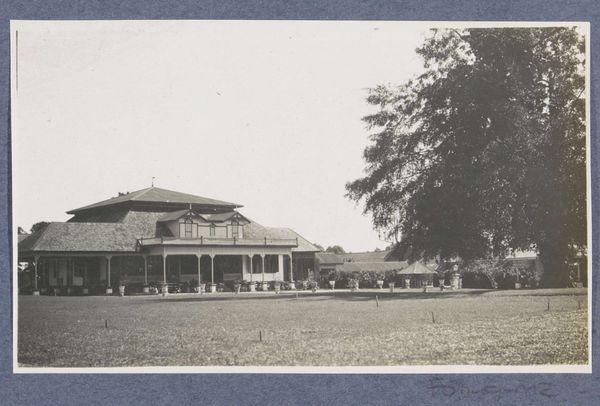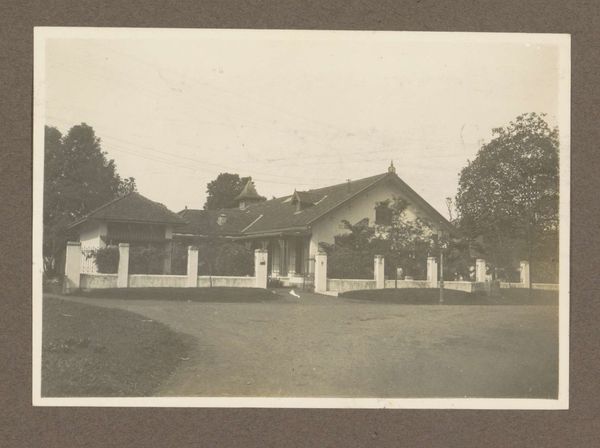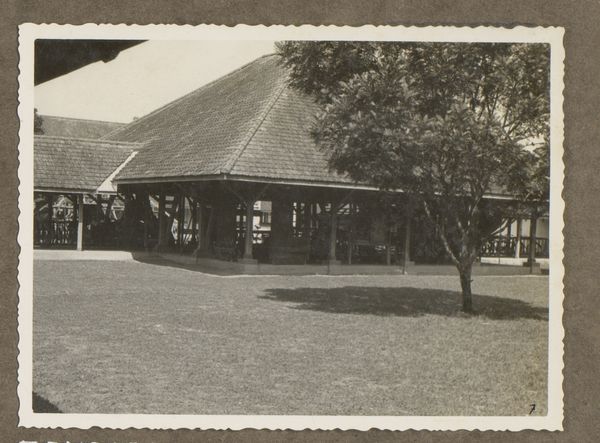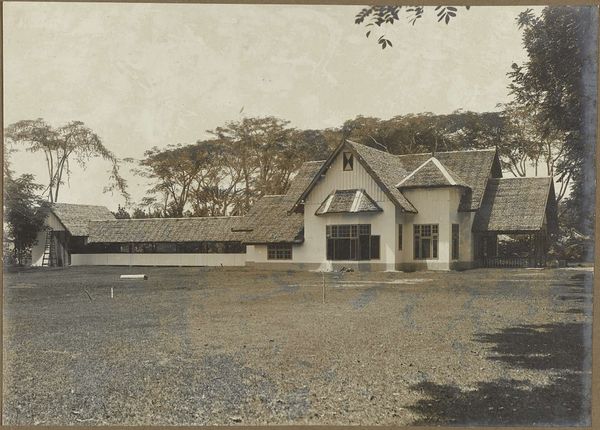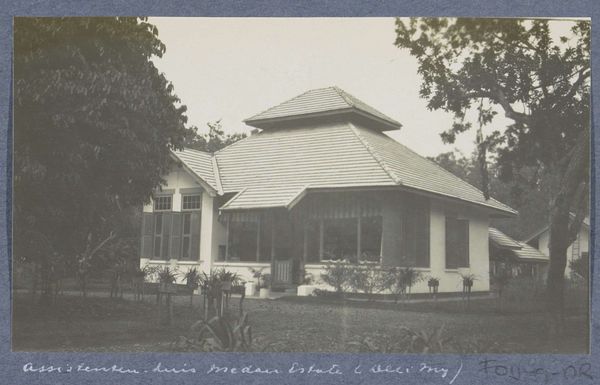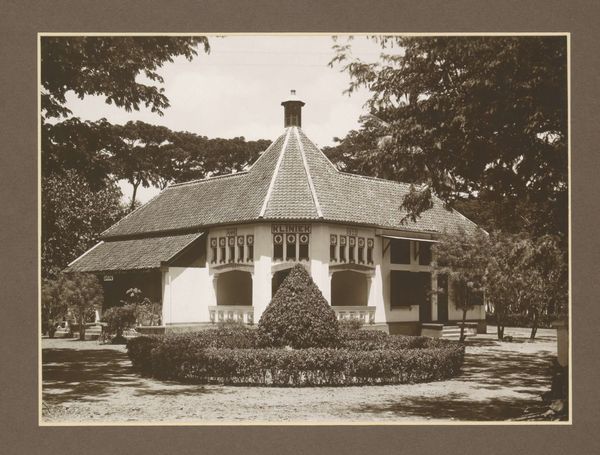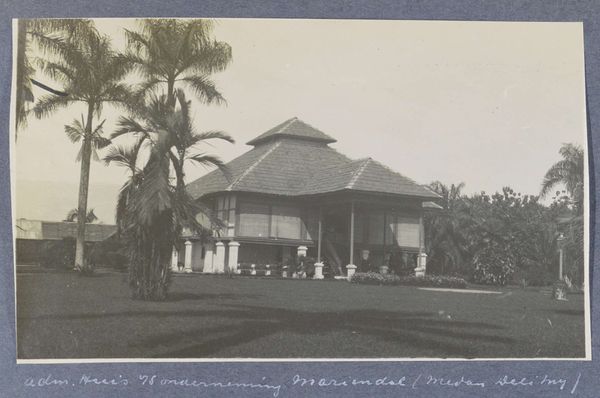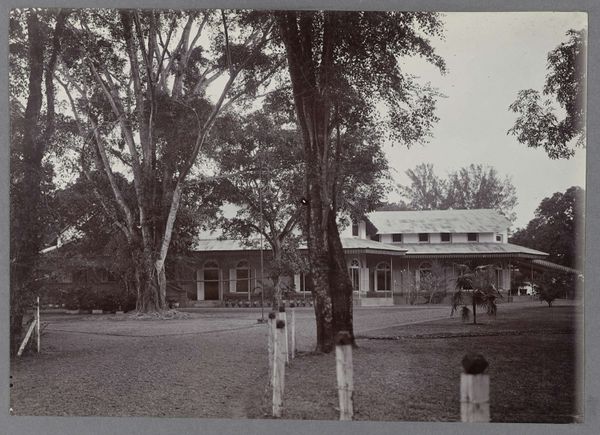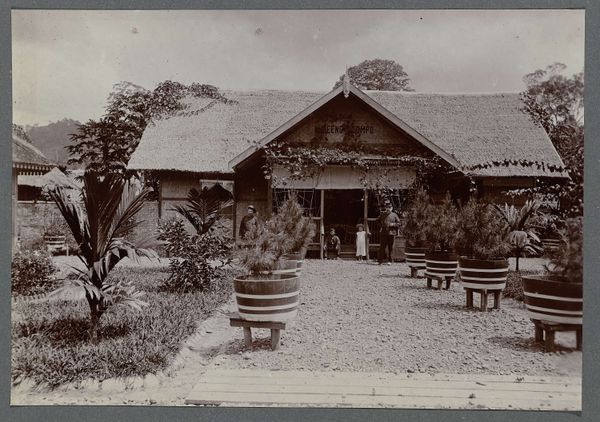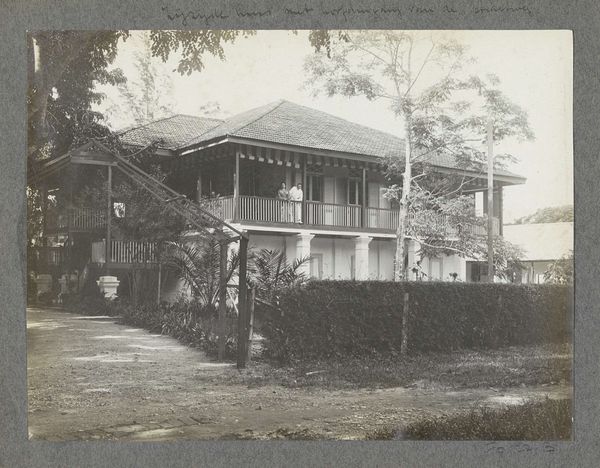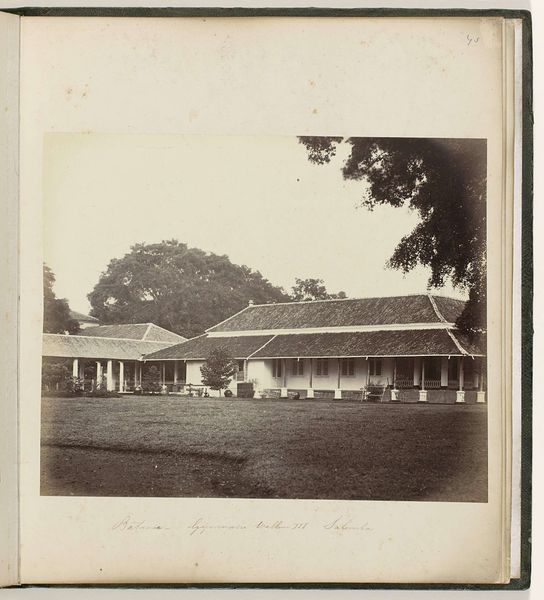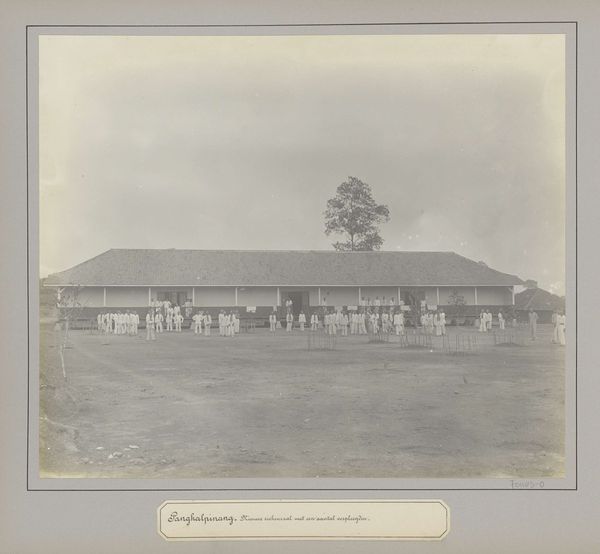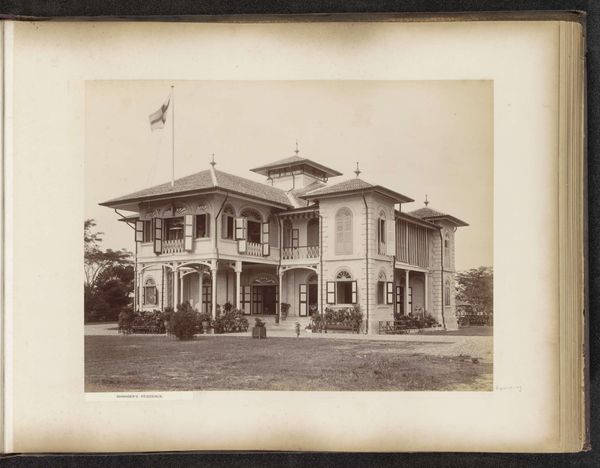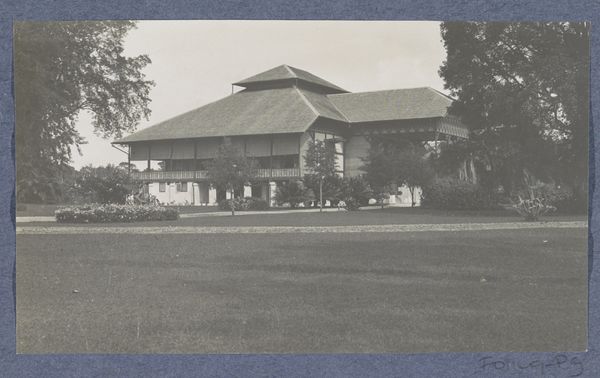
Huis met tuin van cultuuronderneming Gedong Djohore van de Deli-Batavia Maatschappij bij Medan c. 1900 - 1920
0:00
0:00
anonymous
Rijksmuseum
photography
#
garden
#
landscape
#
photography
#
orientalism
#
realism
Dimensions: height 81 mm, width 137 mm
Copyright: Rijks Museum: Open Domain
Editor: This photograph, taken between 1900 and 1920, is called 'Huis met tuin van cultuuronderneming Gedong Djohore van de Deli-Batavia Maatschappij bij Medan', it shows the house and garden of a cultural enterprise. It exudes an almost sterile calmness, wouldn't you say? I’m intrigued by the clear delineation of space and I'm wondering how it represents cultural power dynamics. What do you see in this image? Curator: That calmness, as you call it, speaks volumes. The photograph, though seemingly a simple landscape, documents a very specific moment in the history of colonialism and capitalism. It depicts a plantation house, probably owned by a Dutch company operating in Medan, Indonesia. The immaculate garden and imposing architecture contrast sharply with the reality of the exploitation occurring on these plantations. Editor: So, it’s not just a pretty picture. Curator: Exactly. We need to consider the conditions of the people who toiled on that land. How does this image reinforce or challenge colonial narratives? The very act of photographing this house suggests a desire to document and celebrate colonial success. However, the lack of human figures is striking; it’s as if the people who made this "success" possible are intentionally erased. Editor: That’s a powerful point. It makes you wonder who had the agency to create and disseminate such images, and whose stories were left untold. Curator: Indeed. Understanding Orientalism, we can ask whether the image is exoticising and romanticizing colonial power, even if subtly. It serves to portray the company as sophisticated, cultured, and beneficent while obscuring labor exploitation. What are the politics embedded within what appears to be merely landscape photography? Editor: I had never considered photography having politics before. It gives me a lot to think about. Curator: The photograph functions as both historical document and ideological statement, reflecting the complex relationship between power, representation, and the silencing of marginalized voices. The question becomes, how do we decode it responsibly? Editor: This has completely shifted my perspective. Now I'm eager to explore beyond what is visible in similar photographs and consider their deeper socio-political meanings. Thanks!
Comments
No comments
Be the first to comment and join the conversation on the ultimate creative platform.
